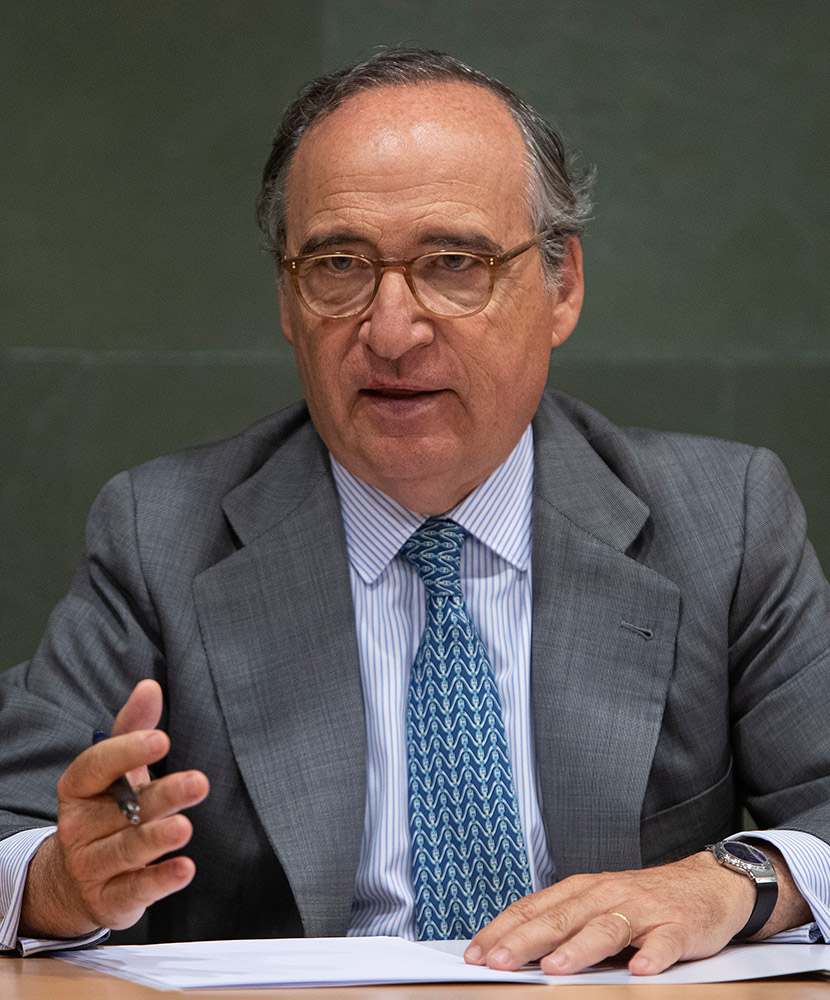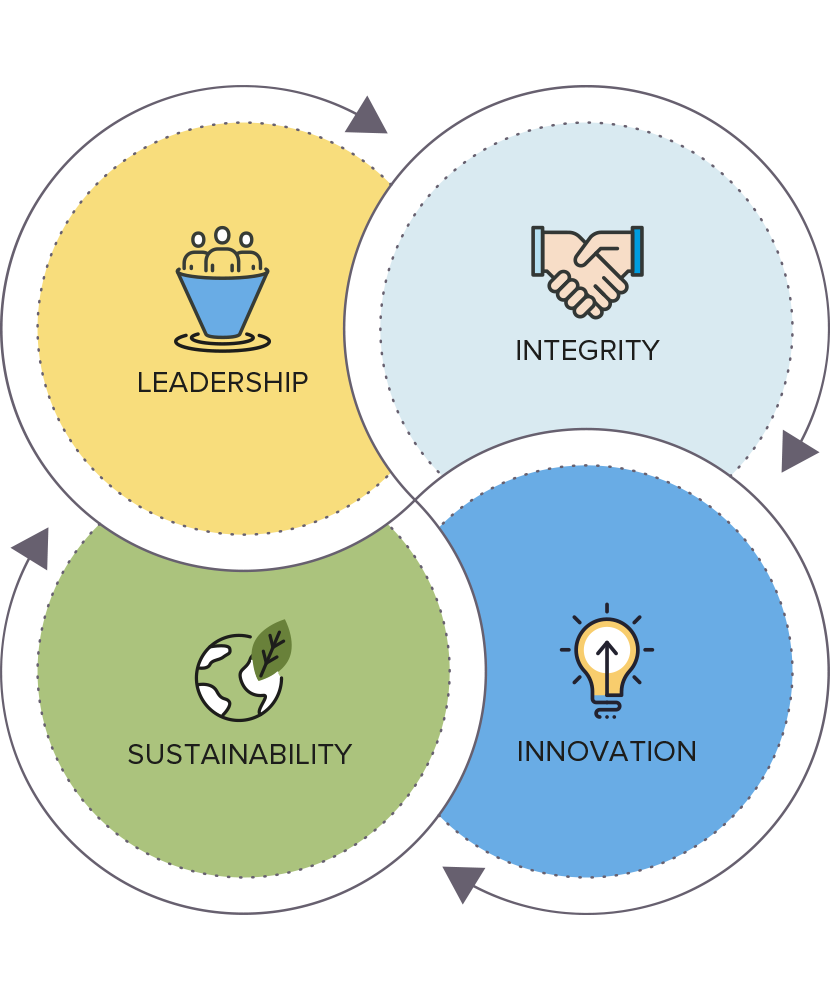CHAIRMAN’S STATEMENT


DEAR STAKEHOLDERS
The trend in the world economy shifted during 2019. In contrast to the strong growth in the economies of Europe, United States, China and its neighbouring countries in previous years, a clear slowdown was observed as from the first quarter of 2019. The confidence indicators declined, especially in some of the stronger exporting economies, as trade wars and uncertainty caused by other geopolitical problems appeared on the horizon, such as Brexit, the conflict with Iran, wars and immigration. The slowdown affected everyone, including the United States, which began to show signs of exhaustion, once the positive effect of the greatest tax cut in its history on consumption and certain sectors of production had worn off.
On the commodity markets, durum wheat prices remained stable in recent crop years, with a slight upturn as from the summer harvest when deficient quality was detected in some origins. The 18/19 rice campaign and the 19/20 forecasts follow the trend of earlier years, with record harvests. Crop prospects are especially good in India, offsetting declines in other rice-producing countries, such as Thailand.
Consumption trends in 2019 were more or less in line with recent years. Consumers have more power to make decisions, more information and more shopping tools and they are willing to pay more for products that meet their wishes and with which they can identify. They still demand products with high quality, easy to prepare and ready-to-serve while showing their preference for natural, healthy, organic food and seeking sustainable products that are compatible with the circular economy. Single-person homes continue to grow, as families shrink and the baby boomers hit the market, with different aspirations and activity requirements from those traditionally associated with older members of the population. The traditional shopping habits of this segment of society have changed. Meanwhile, increased immigration in many developed countries has also brought new tastes and cooking methods, local supermarkets have increased their market share and the new virtual players, such as Amazon or Alibaba, have consolidated their position.
Focusing now on the development of our Group, 2019 was a year of intense activity for the company. One of our main targets was organic and inorganic growth. We strengthened our premium portfolio through the acquisition of Tilda, a very important business in this category and highly complementary with the Group’s business. We continued investing heavily in our organic development, optimising distribution in France, building a new plant at La Rinconada (Seville), adding new skillet gnocchi lines in Canada and enlarging our microwave cup plant in Memphis. We further concentrated our efforts and resources in the premium, fresh and convenience businesses by pulling out of Alimentation Santé, an organic business geared towards the specialist channel, while at the same time expanding our portfolio of products in the Organic and Healthy categories of our leading brands.
Another important aspect was the changes made in the organisation and production of our North American business, which started to bear fruit during 2019, with even more visible effects in 2020.
With regard to the performance of the Rice Division, our brands in Europe have performed well, especially in Germany, Belgium, UK, Italy and Spain, where Brillante sales of both Sabroz and the range of ready-to-serve products have chalked up double-digit growth. Our brands also performed well in the USA, with remarkable sales of Minute cups.
The most significant features in the Pasta Division in Europe were Panzani’s policy to cut down on promotions to protect brand and distributor profitability; the good performance by Garofalo, which is making very positive headway in Spain and France; and the record year in Bertagni and Lustucru’s gnocchi sales. In our North American business, the most outstanding features were the strong performance of Health and Wellness products in Canada and the return to normal in the last quarter following the difficulties suffered at our NE distribution hub in the USA.
On the stock market, the Ebro Foods share rose by 14% in 2019. In the same period, Ibex 35 closed up 11.8%, Ibex Med up 8.4%, Ibex Small up 11.9% and Eurostoxx Food and Beverage up 19.4%. At the date of this report (30 April 2020), the Ebro share is up 1.7%, while Ibex 35 has fallen 27.5%, Ibex Med is down 26.8%, Ibex Small 15.7% and Eurostoxx Food and Beverage 22.4%.
After extensive work on our corporate social responsibility, one of the most important landmarks in 2019 was undoubtedly the definition of the goals that the Ebro Group has marked out for the year 2030, not only to further the sustainability of our entire value chain, but also to define our contribution to the 2030 Agenda, identifying the Sustainable Development Goals (SDGs) to which we can make a greater, better contribution. Another very important achievement during the year was the prestigious DÉFIS RSE 2019 awarded to our French subsidiary Panzani in the Environment category, for its contribution towards reducing waste and pesticides through the Nature and Filiére Blé programmes, two sustainable agriculture initiatives developed in France and Spain for the wheat and tomato crops, respectively. The Group has invested over €11 million globally in training schemes for our team, sustainable agriculture programmes, welfare action projects, occupational hazard prevention and minimising our impact on the environment. All these actions will enable us to consolidate our commitment to the 10 Principles promoted by the UN Global Compact.
Finally, at the date of writing this statement, we are immersed in the global pandemic caused by the COVID-19. Against this backdrop, the Group’s commitment and solidarity began with securing food supplies to all our markets. Our entire team is doing an excellent job, from those who have knuckled down on the front line in our factories, making extra efforts to make sure enough products reached the shops, thus reassuring families, to those working from home so that the company can forge ahead according to our planning. In order to make this possible and guarantee the health and safety of our professionals who have continued to go to their usual workplaces and their families, we have invested considerable sums in protection equipment while stepping up the already strict safety protocols at our plants and factories. We have also pitched in to support society through other actions, through our brands and subsidiaries, in all the countries in which we operate. We strive to ease the healthcare emergency, by donating critical sanitary material such as face masks, tests, bedding, etc. for hospitals and care homes, and the social emergency, by donating food and funds to food banks, NGOs, resident associations and other groups who prepare meals and distribute them among the most vulnerable strata of the population.
The overall impact of this pandemic on the general economy and consumer behaviour is not yet known. Ebro has already shown in the past its enormous strength, flexibility and ability to adapt to major challenges and we have every confidence in these abilities and the unity of our team to deal with the challenges that lie ahead.
Antonio Hernández Callejas
EBRO FOODS CHAIRMAN

